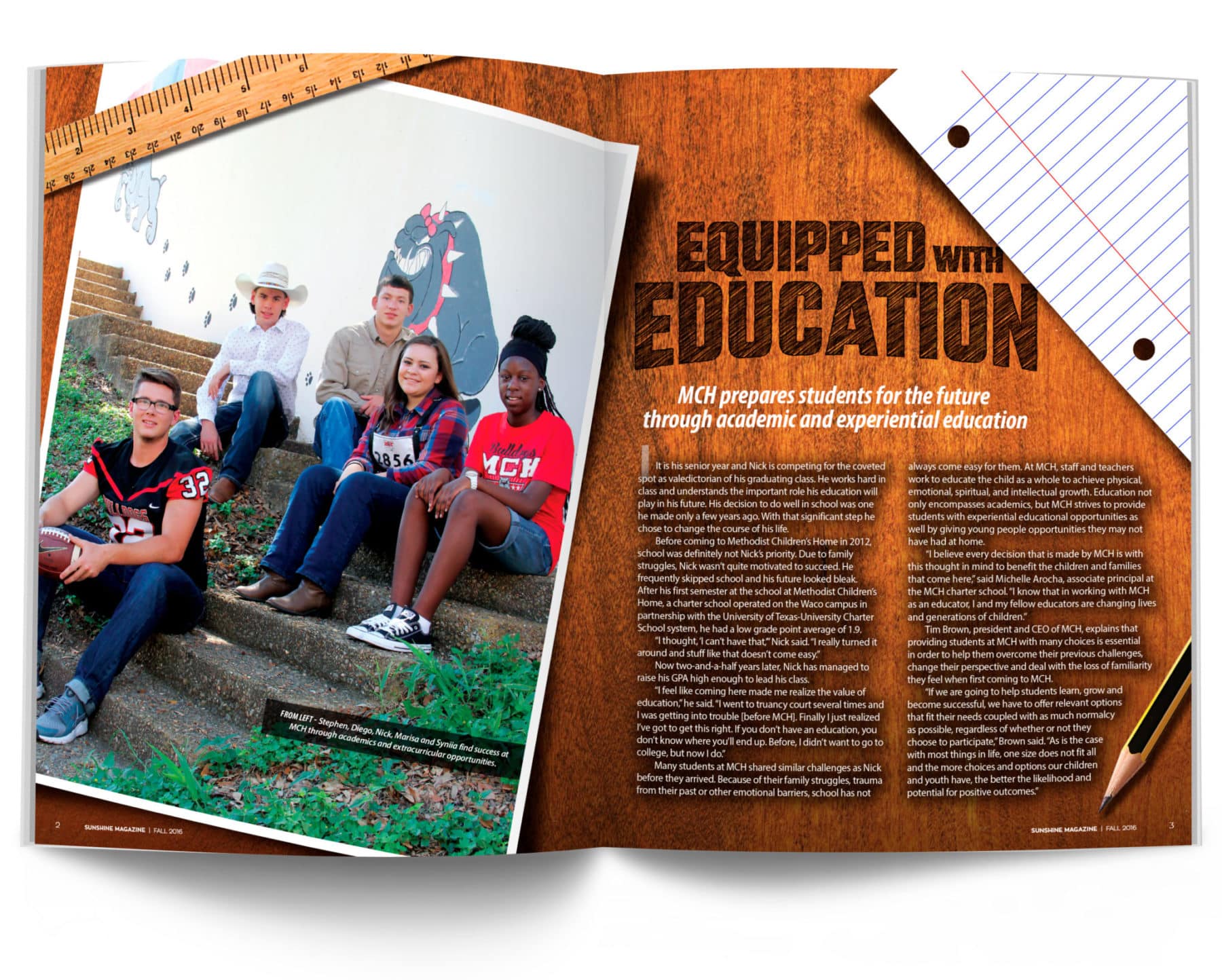 MCH Prepares Students for the Future Through Academic and Experiential Education
MCH Prepares Students for the Future Through Academic and Experiential Education
It is his senior year and Nick is competing for the coveted spot as valedictorian of his graduating class. He works hard in class and understands the important role his education will play in his future. His decision to do well in school was one he made only a few years ago. With that significant step he chose to change the course of his life.
Before coming to Methodist Children’s Home in 2012, school was definitely not Nick’s priority. Due to family struggles, Nick wasn’t quite motivated to succeed. He frequently skipped school and his future looked bleak. After his first semester at the school at Methodist Children’s Home, a charter school operated on the Waco campus in partnership with the University of Texas-University Charter School system, he had a low grade point average of 1.9.
“I thought, ‘I can’t have that,’” Nick said. “I really turned it around and stuff like that doesn’t come easy.”
Now two-and-a-half years later, Nick has managed to raise his GPA high enough to lead his class.
“I feel like coming here made me realize the value of education,” he said. “I went to truancy court several times and I was getting into trouble [before MCH]. Finally I just realized I’ve got to get this right. If you don’t have an education, you don’t know where you’ll end up. Before, I didn’t want to go to college, but now I do.”
Many students at MCH shared similar challenges as Nick before they arrived. Because of their family struggles, trauma from their past or other emotional barriers, school has not always come easy for them. At MCH, staff and teachers work to educate the child as a whole to achieve physical, emotional, spiritual, and intellectual growth. Education not only encompasses academics, but MCH strives to provide students with experiential educational opportunities as well by giving young people opportunities they may not have had at home.
“I believe every decision that is made by MCH is with this thought in mind to benefit the children and families that come here,” said Michelle Arocha, associate principal at the MCH charter school. “I know that in working with MCH as an educator, I and my fellow educators are changing lives and generations of children.”
Tim Brown, president and CEO of MCH, explains that providing students at MCH with many choices is essential in order to help them overcome their previous challenges, change their perspective and deal with the loss of familiarity they feel when first coming to MCH.
“If we are going to help students learn, grow and become successful, we have to offer relevant options that fit their needs coupled with as much normalcy as possible, regardless of whether or not they choose to participate,” Brown said. “As is the case with most things in life, one size does not fit all and the more choices and options our children and youth have, the better the likelihood and potential for positive outcomes.”
Students at MCH can explore their interests through activities for student leadership, job training, athletics, music, theatre arts, agriculture sciences and other extracurricular and recreational activities. Jeff Creel, program administrator for school and transition services, said although some students may not have thought they would participate in some of these activities in the past, they find participation is supported and encouraged in MCH’s environment.
“We try to meet the individual needs of each student by finding activities to harness their gifts and help improve self-esteem and self-worth,” Creel said. “That’s very important. Many of our kids have gone to large schools where they may not have had the opportunity to participate in activities because of attendance or trouble in the classroom. But being here, they have the support they need and are able to navigate and successfully participate in those opportunities.”
Creel said MCH also provides a chance to heal some of the strains the family experienced at home from the child’s poor performance in school or the helplessness they felt as they tried to navigate the public education system.
“A lot of the students come here without hope because they have struggled in school,” he said. “So for these families and students I think we offer them a new opportunity for hope and the opportunity to realize their dreams of achieving an education, being successful and realizing their own strengths.
“A piece of that is because we are very intentional so therefore we focus more on those strengths and seek opportunities for them to be successful in other ways, not just in the classroom,” he added.
A Nurturing Community
Most of the residents of the Boys Ranch and Waco campus attend the charter school. Located on the Waco campus, the charter school opened in 2003 and now offers grades six through 12 for its residents as well as several off-campus students as part of the Day Program. Due to the low teacher-to-student ratio of 12 to 1, the school is able to provide students with more one-on-one attention as well as tutoring, a key factor in some students’ academic success.
The charter school has had 283 total graduates since it opened; 19 students are slated to receive their high school diplomas in May 2017 to put the school over the 300 mark.
“In general, our graduation rates are higher than those in the general society,” Brown said. “The past several years, our students have come to us with several academic deficits resulting from conflicts, lack of supervision, lack of individualized tutoring and assistance, and dominant attitudes about their own lack of abilities rather than their capabilities.
“The biggest potential for success for our children is to reframe education and learning as positive opportunities rather than perceiving them as another frustrating disappointment and confirmation that they are not smart enough or will never be successful,” he said. “A typical student may enter our care being as much as a year or more behind academically and they are able to catch up and graduate on time with their graduating class.”
The school has also partnered with MCH in training teachers and staff in trauma-informed practices such as the importance of establishing relationships with a student to aid them in correcting behaviors or giving them techniques to help them better handle its special population of students.
Arocha said students are allowed to use standing desks, wiggle seats, or other quiet fidgets to help them to release energy, in addition to bringing snacks and water to class in order to stay hydrated. Arocha said her staff understands MCH students need to be encouraged to self-regulate in order to help them focus better in class.
“Kids need movement,” Arocha said. “In the educational environment, kids are expected at a really young age to sit for a three-hour test and that’s really hard for some adults. So being able to have some movement or a softer chair or to be able to get up and get a snack helps them to stay focused.”
The charter school also offers students leadership opportunities through student council, competitions through Texas Christian Athletic Fellowship, and Safe School Ambassadors program where students learn about peer pressure and bullying and take ownership in making positive change in the school.
Academic success is also rewarded by inclusion into Bulldog Pride, an incentive program for students who pass all their classes and show good citizenship in school. In Bulldog Pride, students are able to wear jeans on special days, eat lunch outside and are treated to a special food buffet from local restaurants every six weeks.
Syniia, an eighth grader and member of Bulldog Pride, was attending a public school when a friend from church told her about MCH’s charter school. She was having difficulty concentrating in class; the large classes were not a good fit for her. After starting school at MCH as part of the Day Program as a seventh grader, Syniia has seen improvement in her grades.
“The smaller classes help me learn better,” Syniia said.
Her family has been happy with the change and Syniia’s younger brother now attends the school as well. Syniia likes that her new school is able to offer her more privileges and understands that the trauma-informed practices are there to better serve her fellow students.
“I think it’s great for the class,” she said. “Some kids need it to help them do their work.”
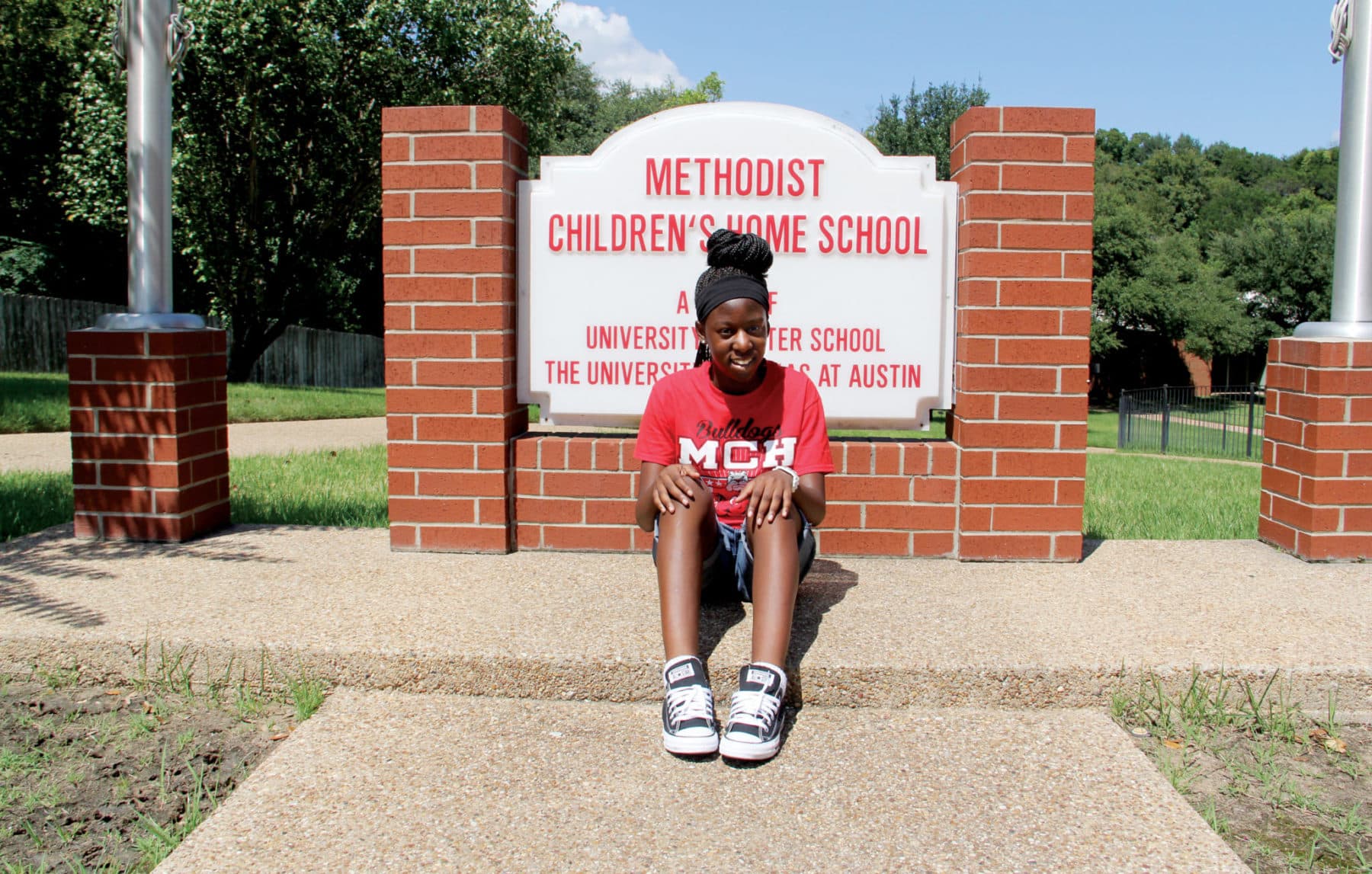
Lessons in Leadership and Responsibility
Marisa, a 10th grader and resident of MCH since July 2015, is also part of Bulldog Pride and has emerged as a leader in the school. She has achieved success academically and said she cares about doing her best in school.
“I know without good grades, I can’t get accepted into a major college,” Marisa said. “I’ve just always wanted to have the best grade possible and know more.”
Marisa’s goal is to attend Texas A&M University in Corpus Christi to study oceanology and make new discoveries. She isn’t afraid of new challenges and is involved in volleyball, golf and FFA, activities she was unfamiliar with before MCH.
“I’ve learned patience, because you can’t always rush good things,” she said of the life-lessons she has learned. “You have to wait sometimes for good things to happen. You can never give up on it.”
Through FFA, students like Marisa learn about animals while caring for them on a daily basis. The high school agricultural class was expanded this year to include eighth graders as well. Through the class, Marisa was able to overcome her fear and show a sheep at local livestock shows last year for the first time.
“Marisa loves animals and has a desire to learn about every species,” said Steve Kruse, agricultural teacher. “She has been in the program for two years and it has been fun to watch her use her training to exhibit her projects to their highest potential. She is also great about helping other students learn and be successful.”
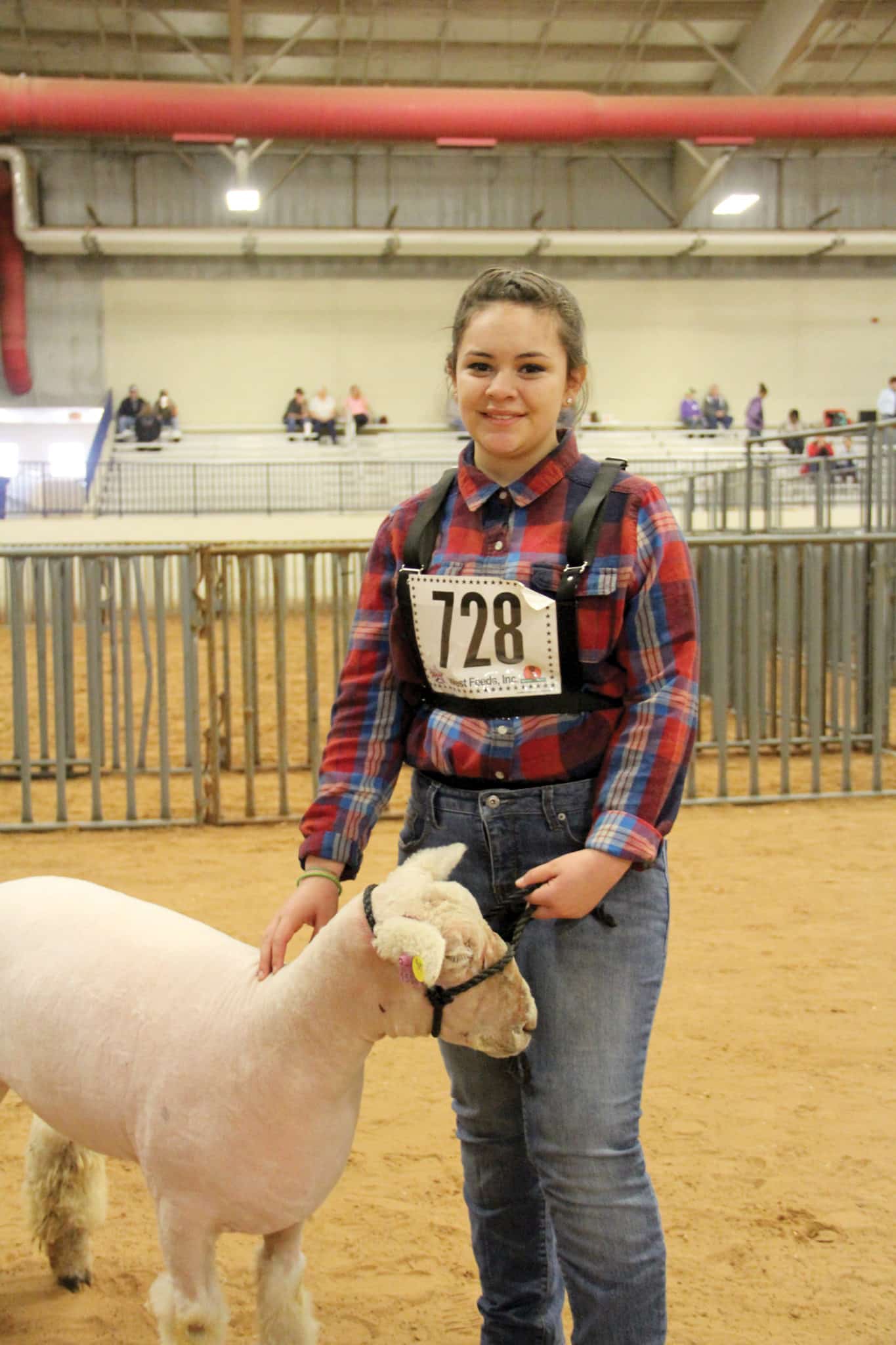
Preparing for a Career
Nick also participates in FFA and will care for a steer this year. Through the agricultural class, he also became more familiar with welding, a skill he originally learned from his uncle. He said the craft started to grow on him and he hopes to attend Texas State Technical College to prepare for a career working on oil rigs in his hometown.
“There’s a lot of welders needed out there,” Nick said. “Welding is something that will always be needed whether it is in the oil fields or in farm work.”
The charter school gives students like Nick a chance to discover and prepare for a career through hands-on courses such as agricultural mechanics, local job preparation partnerships, life skills training through the transition services program, and dual credit opportunities.
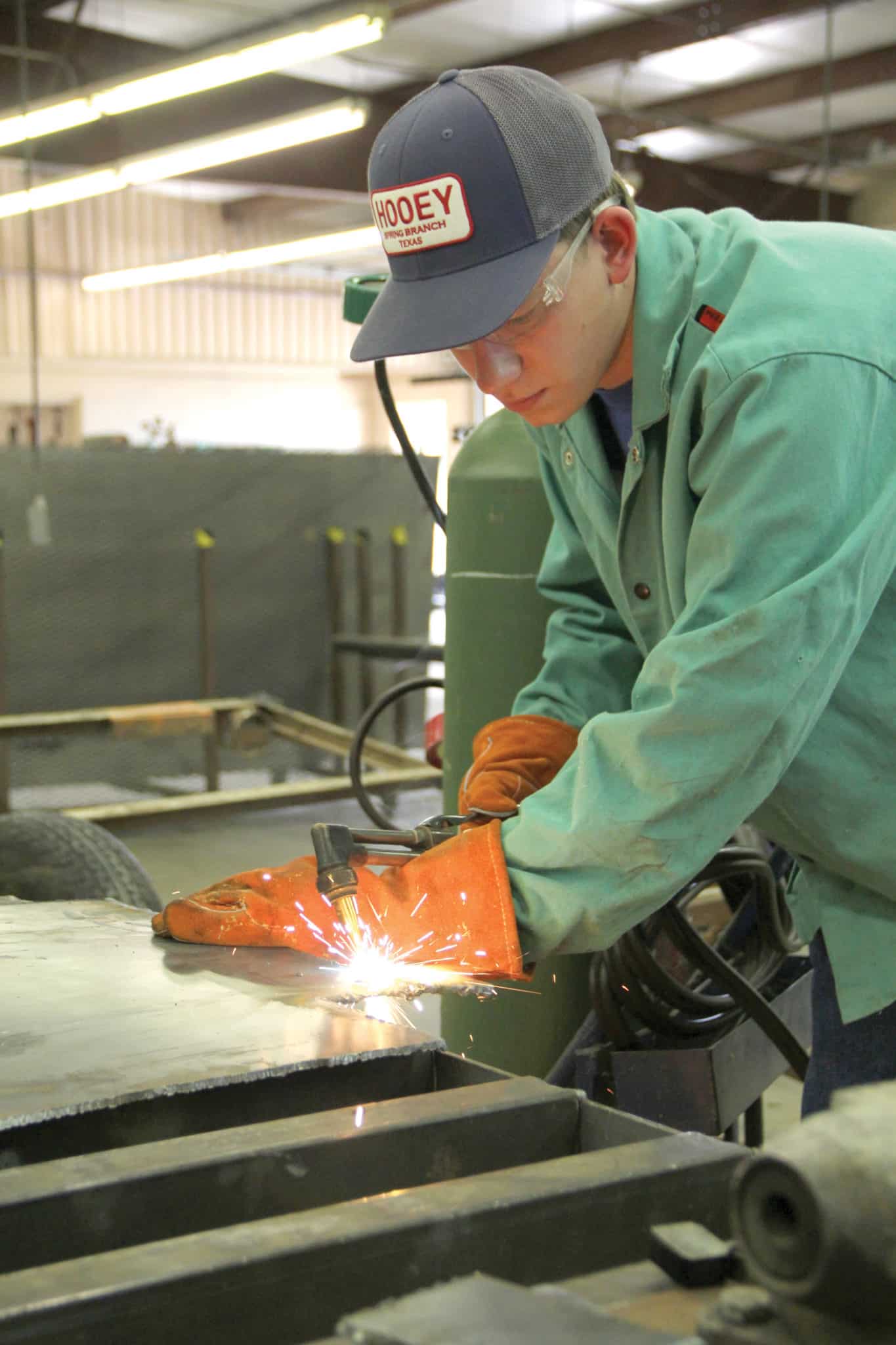
Transition services staff meet with students during senior meetings to help prepare them for the transition from high school. They work on developing a post-graduation plan, applying for scholarships, career exploration and independent living skills. Each year, more than $500,000 is awarded to MCH graduates to pursue college or an advanced degree, a certificate at a trade school or job-related training. Transition services staff help students understand their options and make plans for their future.
Students who qualify are able to get a head start and attend dual credit courses at McLennan Community College while still attending high school. Also, the charter school partnered with Waco Independent School District to offer students a chance at job training programs called Greater Waco Advanced Manufacturing Academy (GWAMA) and Greater Waco Advanced Health Care Academy (GWAHCA). Students in these programs go to a different campus for half of the day to learn skills such as welding, robotics or health care and obtain certifications in their chosen areas.
Nick and Diego, who is also a senior, attend GWAMA to study welding. This is Diego’s second year as a GWAMA student; previously he studied robotics and electronics. Diego admits he doesn’t really like school but knows it is necessary for his future. He wasn’t doing well at school when he first came to MCH, but soon began to turn things around.
“MCH’s teachers don’t give up on you,” he said. “If you’re trying, they will help you.”
Diego hopes to join the military after graduation and eventually become a mechanic, but hopes to earn his welding certification as a backup plan.
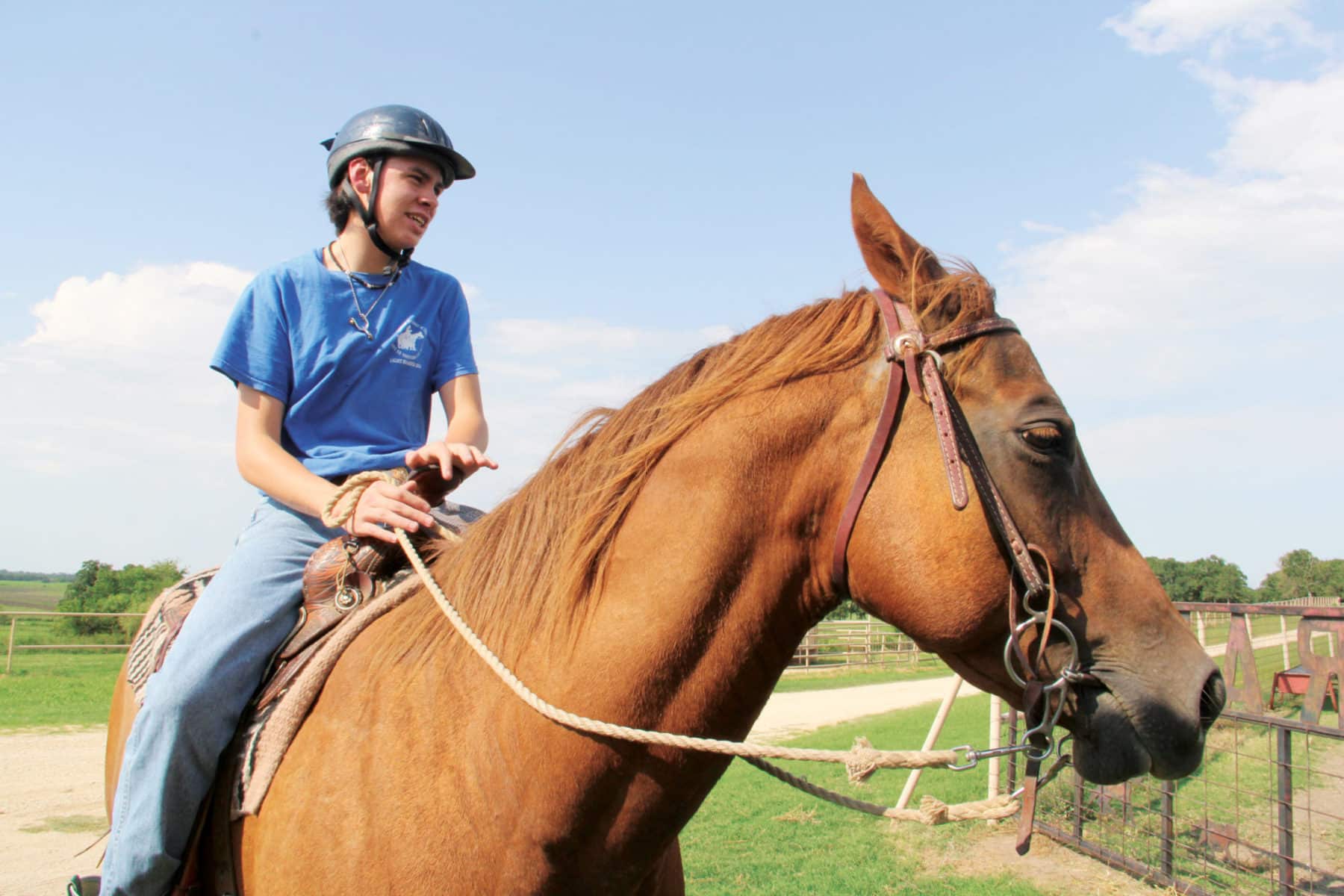
Building Skills and Character
As a resident of the Boys Ranch, Diego developed an interest in horses and currently attends horsemanship as part of MCH’s afterschool programs. He is also able to work in the horse barn during non-program days. Through his work, he has become familiar with training and caring for horses as well as learning the benefits of equine therapy.
“It teaches you responsibility and trust because you have to be responsible on a horse because it’s 1,500 pounds of muscle,” Diego said. “If you’re not paying attention, you can get hurt or someone else can get hurt. It teaches you confidence and to not have fear in yourself because when you are scared, the horse can feel it through you. If you’re confident in yourself and you have fun, then they are having fun with you, too.”
Stephen, also a senior, has been an MCH resident since 2013. He said he has learned life lessons through his involvement in athletics during his time at MCH. This year Stephen is quarterback of the Bulldogs’ six-man football team and will also compete in basketball and track.
“Stephen has been a part of athletics for three years and this year has taken on a much bigger role,” said Matt Rodgers, athletic director at MCH. “He is tasked with playing quarterback, which for us comes with an extreme amount of responsibility and not much praise. I think through his time in athletics, Stephen has grown and learned how to be successful both on the field and in life.”
MCH students have the opportunity to compete in six-man football, volleyball, basketball, track, cross country, and golf. By offering team sports, students are able to find outlets for their emotions while also building confidence and learning teamwork, Brown said.
“The team sports and exercises help with social skills, anger management, forming friendships, understanding the benefits of cooperation, resolving conflicts, building healthy relationships, and handling losses and disappointments appropriately,” Brown said. “They learn how to communicate appropriately, utilize self-control and achieve goals through cooperation.”
Stephen was part of the football team that finished as state runner-ups last year. He said each year at MCH brings the challenge of working with new teammates so they must learn to work together as the season progresses and cooperate with each other.
“Sports have helped me grow a lot,” he said. “It helps me keep my weight down which is something I was trying to do for a long time and that boosts my self-esteem so I carry myself in a better manner,” Stephen said. “It’s helped me become a man, too, learning from losses and learning from stuff that has been going on in the team. It helps me learn from my mistakes and to just keep going and get better with everything I do in life.”
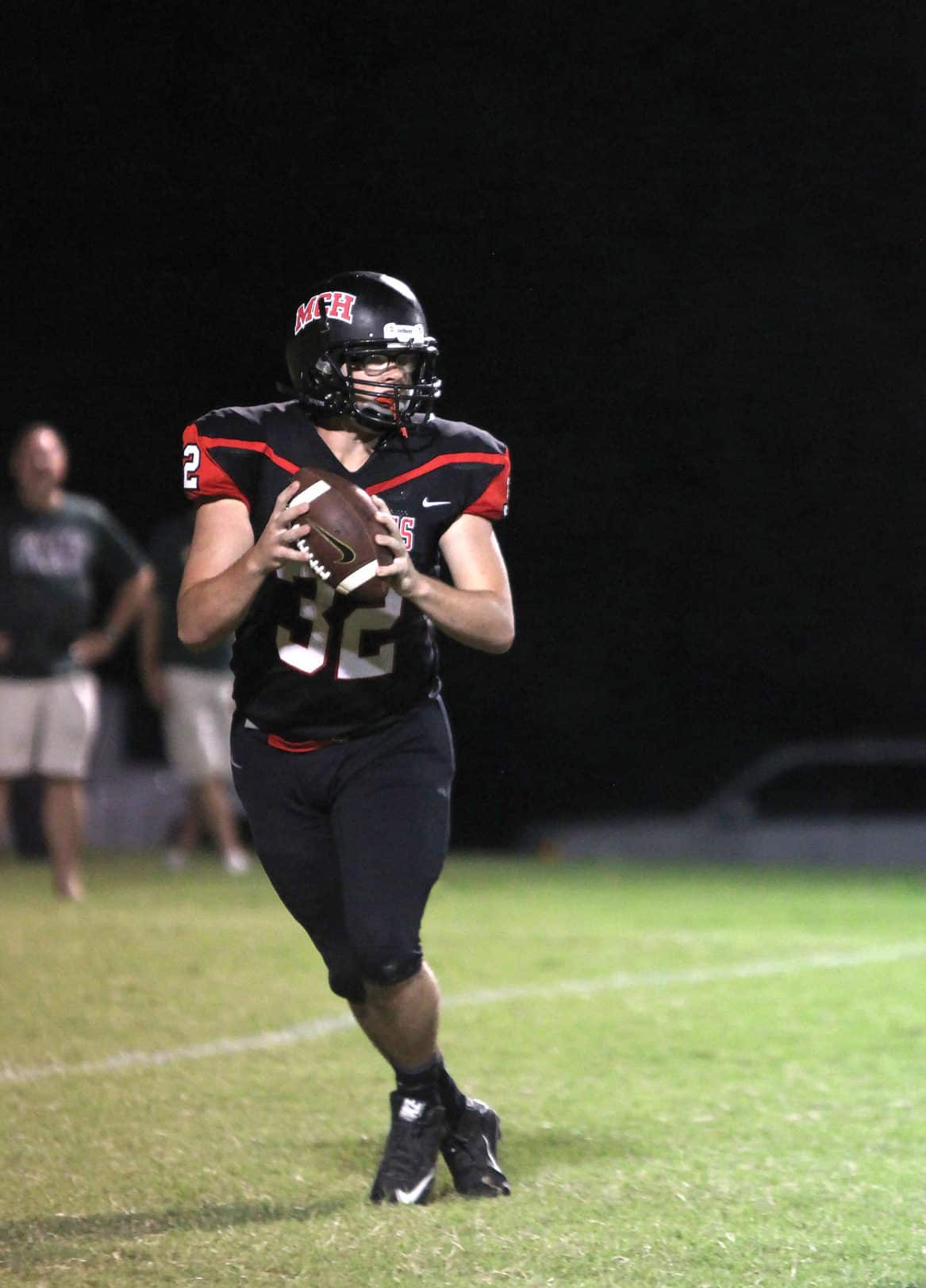
Making an Impact
Stephen is also performing well in academics and is challenging Nick for the role of valedictorian of their class. After graduation he hopes to study kinesiology at Texas A&M University. He would be the first person in his family to attend college.
“College is my main priority,” Stephen said. “That would be a real accomplishment for me and my family.”
Although Stephen was unable to live with his mother due to a difficult situation, he feels grateful for his time at MCH and the lessons he has learned.
“I used to be angry at the world before I came to MCH because I was so mad at myself and my mom and everything that happened,” he said. “I was real upset and just mad because I didn’t understand any of it. Now that I’m here I look back on it and I’m thankful. It has helped me come a long way from where I was. I’m not mad anymore. I have my future set for me now. I’m getting along and on the right track.”
Youth at MCH are able to take advantage of programs and opportunities that are tailored to fit their needs and help them build brighter futures for themselves. Many times, these opportunities would not have been available to them at home.
“I believe our biggest success in education is having a variety of tools and options available for students to promote and foster success,” Brown said. “Most have had few successful ventures in anything school-related prior to admission. Before coming here, school was not rewarding. After coming here and experiencing a different outcome and response from staff and teachers regarding the benefits of an education and receiving the support necessary to be successful, their opinions and investment changes.”
Along with Stephen, Diego acknowledges the life lessons he has gained from living at MCH. He came to MCH in 2011 after his mother was incarcerated and he was unable to be placed with family out of state. He was very angry at first and admits he would intentionally get in trouble to try to get kicked out of the program. But with the guidance he received at MCH, he was able to turn his life around.
“Things always happen for a reason,” he said. “I’ve learned that only you can change your future. I decided that I was going to make a new life for myself and be better than I should’ve been due to my home situation. It taught me that there’s always new hope.”
Leave a Reply